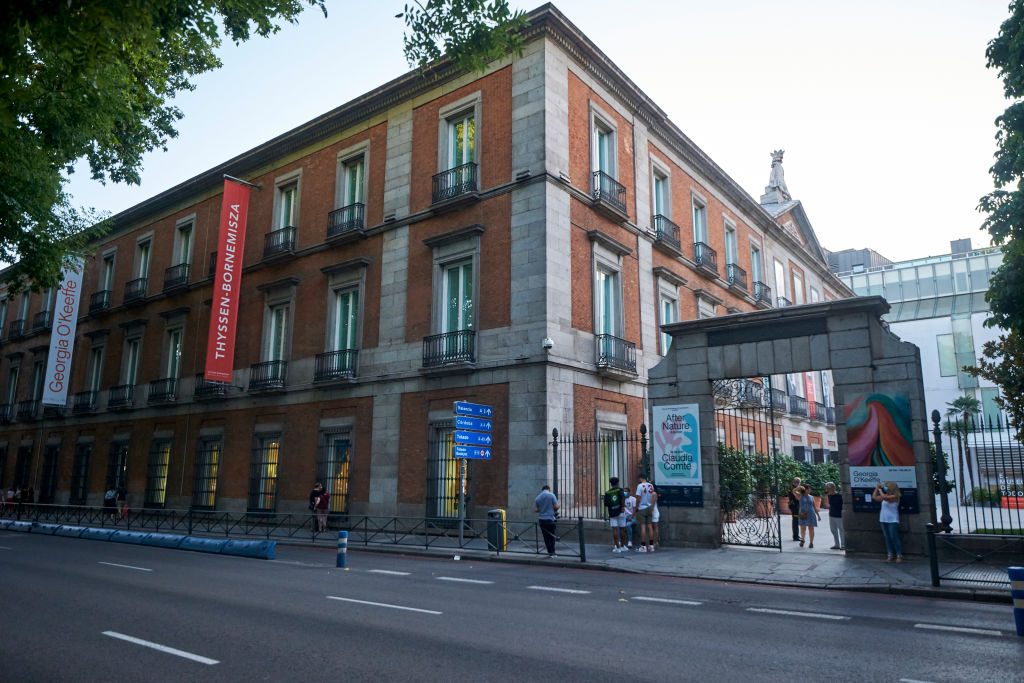Museums & Institutions
The Spanish Government Has Officially Sealed a $115.4 Million Deal to Keep Carmen Cervera’s Collection in Madrid for the Next 15 Years
The agreement ensures that Gauguin’s masterpiece, Mata Mua, will return to public view.

The agreement ensures that Gauguin’s masterpiece, Mata Mua, will return to public view.

Naomi Rea

Spain’s ministry of culture has officially signed a €97.5 million ($115.4 million) lease agreement with the Spanish socialite and collector Carmen Cervera to keep her collection on view in Madrid for the next 15 years. The agreement, which involves more than 300 artworks by Picasso, Matisse, Monet, Canaletto among others, also grants the Spanish state “preferential acquisition rights” on all or part of the collection.
Most of the works have been at the National Thyssen-Bornemisza Museum in Madrid for decades hanging alongside the collection of Cervera’s late husband, the Swiss industrialist Hans Heinrich Thyssen-Bornemisza, which the Spanish state bought for $338 million in 1993. Cervera, whose full name is actually Carmen Thyssen-Bornemisza de Kászo, had previously signed a loan agreement with the Spanish state concerning her own collection in 2002. But the fate of the collection has hung in the balance since that agreement expired in 2017.
The development announced on Tuesday, August 3, formalizes a deal Cervera struck with the then-minister of culture in January this year. It brings an end to the uncertainty surrounding the collection, and years of negotiations that lasted through four cycles of culture ministers.

Villahermosa Palace, home of the Thyssen-Bornemisza National Museum, on 24 July, 2021 in Madrid, Spain. Photo By Jesus Hellin/Europa Press via Getty Images.
The Spanish paper El País reported that the signing of the agreement made in January was delayed for various reasons concerning complications over Cervera’s legal tax residence—she lives in the tax haven of Andorra—and the distribution of the collection’s ownership between her and her son Borja Thyssen. But the final extension expired on July 15, and Spain rushed a royal decree that would grant the state the right to make certain guarantees concerning the collection, including that it would stay together and on view in a stable manner, as well as insurance that it would be liable for its security and cover loss or damage to the works while it in its possession.
Cervera’s collection will now remain on view in Madrid until 2036, on loan to the Thyssen-Bornemisza Collection Foundation. The agreement finally confirms that Gauguin’s masterpiece Mata Mua, will return to public view in Madrid after Cervera removed it from the country during lockdown last year. The move raised fears that it could be headed for sale, although Thyssen said in an interview with El País earlier this year that she intends to return the painting as soon as the contract had been signed.